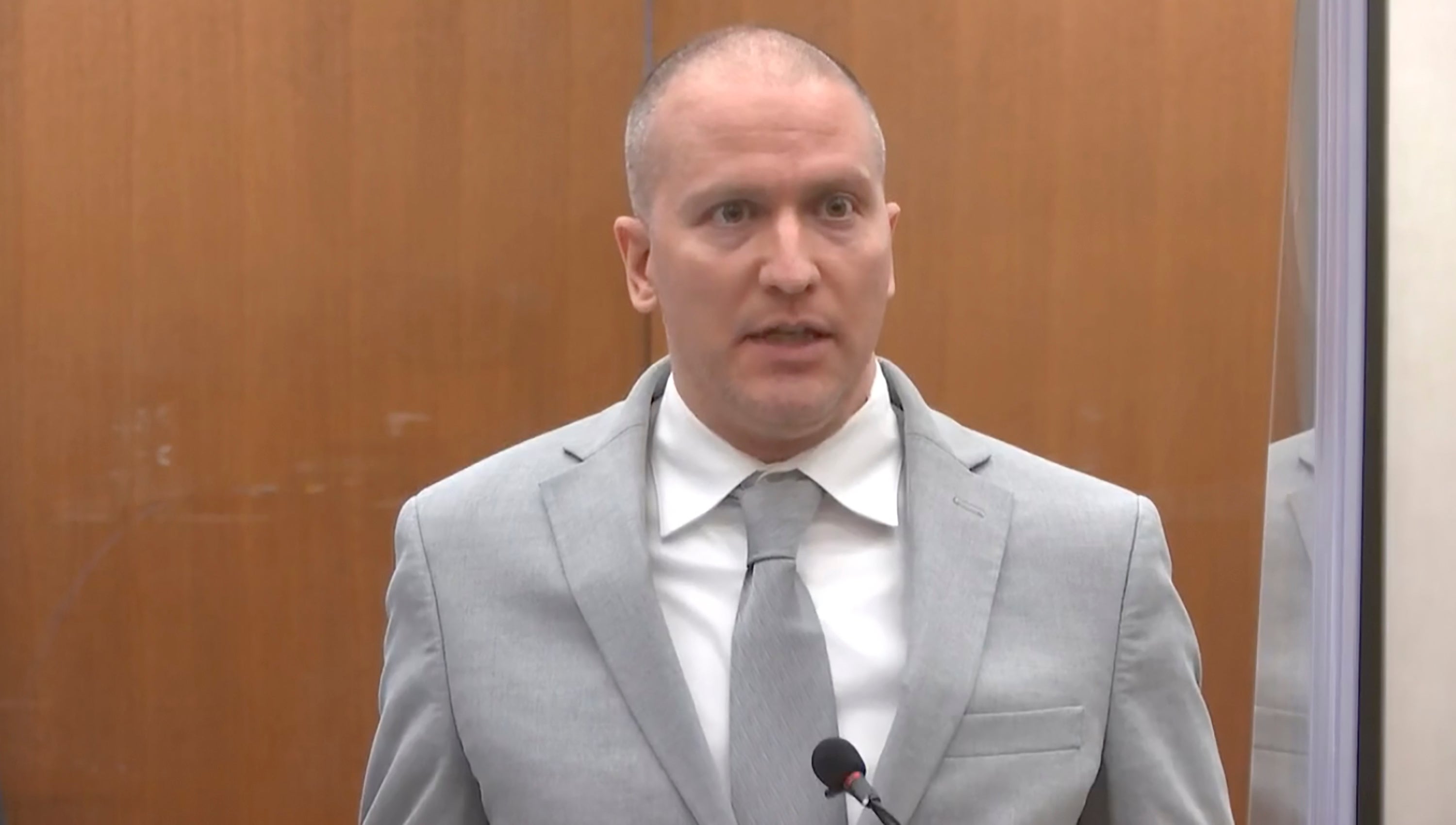Minnesota prosecutors oppose releasing Chauvin juror names
Prosecutors have asked a judge to reject a request by media outlets to unseal the names of the jurors who convicted ex-Minneapolis police Officer Derek Chauvin of murder in the death of George Floyd

Your support helps us to tell the story
From reproductive rights to climate change to Big Tech, The Independent is on the ground when the story is developing. Whether it's investigating the financials of Elon Musk's pro-Trump PAC or producing our latest documentary, 'The A Word', which shines a light on the American women fighting for reproductive rights, we know how important it is to parse out the facts from the messaging.
At such a critical moment in US history, we need reporters on the ground. Your donation allows us to keep sending journalists to speak to both sides of the story.
The Independent is trusted by Americans across the entire political spectrum. And unlike many other quality news outlets, we choose not to lock Americans out of our reporting and analysis with paywalls. We believe quality journalism should be available to everyone, paid for by those who can afford it.
Your support makes all the difference.Prosecutors asked a judge Monday to reject a request by a coalition of media outlets to unseal the names of the jurors who convicted ex-Minneapolis police Officer Derek Chauvin of murder in the death of George Floyd saying it could subject them to harassment and make it harder to seat a jury for the trial of three codefendants next year.
Judge Peter Cahill had ordered earlier that the jurors' identities be kept secret for at least 180 days after the verdict. That's three months away. Chauvin, who is white, was convicted in April of killing Floyd, a Black man, and was sentenced to 22 1/2 years in prison.
The media coalition, which includes The Associated Press, asked Cahill earlier this month to release the information immediately, saying there was no known threat to juror safety that would warrant keeping their names sealed. Attorney Leita Walker said the media and public have a right to information about a jury, and that anonymous juries are rare and only allowed in exceptional circumstances, such as in cases involving gangs or organized crime.
But lead prosecutor Matthew Frank argued in a response Monday that courts have ample authority to preserve juror anonymity from the “substantial probability of harassment.” He noted that Cahill, in earlier orders, made specific and detailed findings that jurors in the Chauvin case could be subject to harassment or intimidation if their names became public too soon. And he said the media coalition is downplaying the risks.
“Because of this case’s international profile, the potential sources of harassment are diffuse and span the globe." Frank wrote. "Once this Court releases juror material, that material will quickly appear in every corner of the internet, including on social media and darker corners of the web. Nefarious actors may exploit that information, harassing jurors in person or online.”
Two Chauvin jurors and one alternate have identified themselves and come forward to tell their stories since the trial, while the remaining 10 jurors and one alternate have not.
The media coalition this month also raised similar concerns about the decision by a different judge to keep jurors' names sealed in the manslaughter trial in November of former Brooklyn Center Officer Kim Potter Potter, who is white, fatally shot Daunte Wright a 20-year-old Black motorist, on April 11.